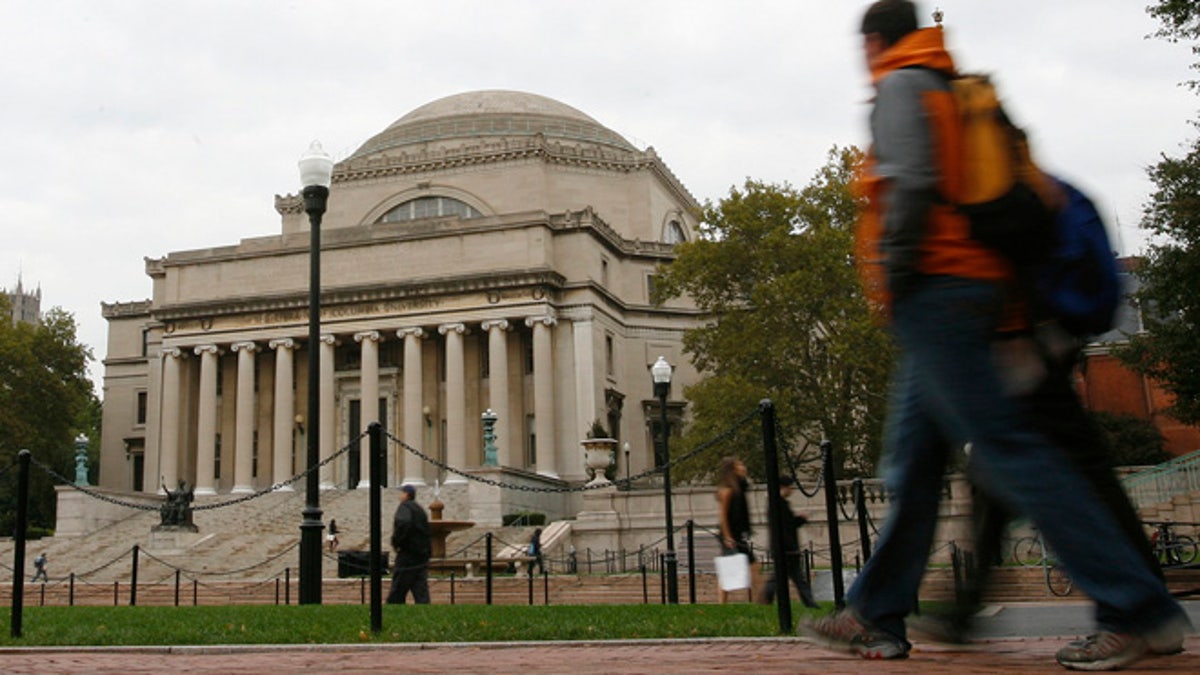
FILE: A group of students at Columbia Law School who’ve had their faith in the “integrity of the grand jury system” after high-profile grand jury decisions are allowed to postpone their final exams so their performance would not suffer. (Reuters)
This won't prepare them for tough judges, unscrupulous clients or merciless partners at the law firms they hope to work for.
Columbia Law School has agreed to delay final exams for students who face "trauma" and disillusionment following two recent, racially-charged cases in which grand juries declined to indict white police officers in the deaths of unarmed black men. And now, students at Harvard and Georgetown want the same dispensation, also saying they just can't face their tests in the wake of the grand jury decisions in Missouri and New York.
"For some law students, particularly, though not only, students of color, this chain of events is all the more profound as it threatens to undermine a sense that the law is a fundamental pillar of society to protect fairness, due process and equality," Robert E. Scott, Columbia's interim dean, told the school in an email Saturday.
The cases involved Michael Brown, an 18-year-old shot by a Ferguson, Mo., police officer in August after, according to witnesses, Brown fought for the officer's gun and then charged at him; and Eric Garner, a Staten Island, N.Y., man who died after an NYPD officer applied what appeared to be a chokehold while trying to subdue him last summer.
The Ivy League law school's email came after a group of minority students called for the exams to be put on hold due to trauma in applying on exams the same legal principles that are used to "deny justice to so many black and brown bodies."
"We have struggled to compartmentalize our trauma as we sit and make fruitless attempts to focus on exam preparations," the group, which calls itself the Columbia Law School Coalition of Concerned Students of Color, wrote to administrators. "In being asked to prepare for and take our exams in this moment, we are being asked to perform incredible acts of disassociation that have led us to question our place in this school community and the legal community at large."
The group posted the letter online.
"We sit to study with the knowledge that our brothers and sisters are regularly killed with impunity on borders and streets; we sit to study with the understanding that our brothers and sisters are marching to have our humanity recognized and valued by a system that has continually failed us," the letter read.
The group called the grand jury decisions "legal violence" that implicates us all. The group says its members cannot sleep at night and the trauma "will be present on exam day."
Faculty members at the school could not recall the last time an exam extension was allowed after a public event, The Wall Street Journal reported. Students who want the postponement must petition the dean and will be considered according to their particular situation. The Journal reported that each request, so far, has been granted.
A "trauma specialist" will also meet with students at the campus this week. The University of California-Irvine offered students a similar counseling last week to help with "healing, grieving and support."
In addition to Columbia, law school students at Harvard and Georgetown are apparently equally dismayed by the non-indictments and are reportedly asking for similar accommodations.
Though few question the sincerity of these students' feelings, there are critics that say a law school is doing its students a disservice by granting such a request.
Eugene Volokh, who teaches free speech law at UCLA School of Law, wrote in The Washington Post that such a request seems to promote "expectations and attitudes" that will not serve the students later in their legal lives.
He asked, "Where would the civil rights movement have been if civil rights lawyers were so traumatized by injustice that they couldn't function effectively without deadline extensions?"
A Columbia law spokeswoman told The New York Post that the school's exam policy allows students to postpone tests over "extenuating conditions, including illness, religious observance, bereavement and other exceptional and documented circumstances."
Elie Mystal wrote in Above The Law Redline that although he sympathizes with the group, requesting the extension sends the wrong message.
"Every black person has been told the line 'you have to be twice as good' as the white man to get the same thing," he wrote. "This is what that looks like. Nobody said it was going to be easy or even fair, but showing up to take your test in the face of this adversity happens to be what is required."








































